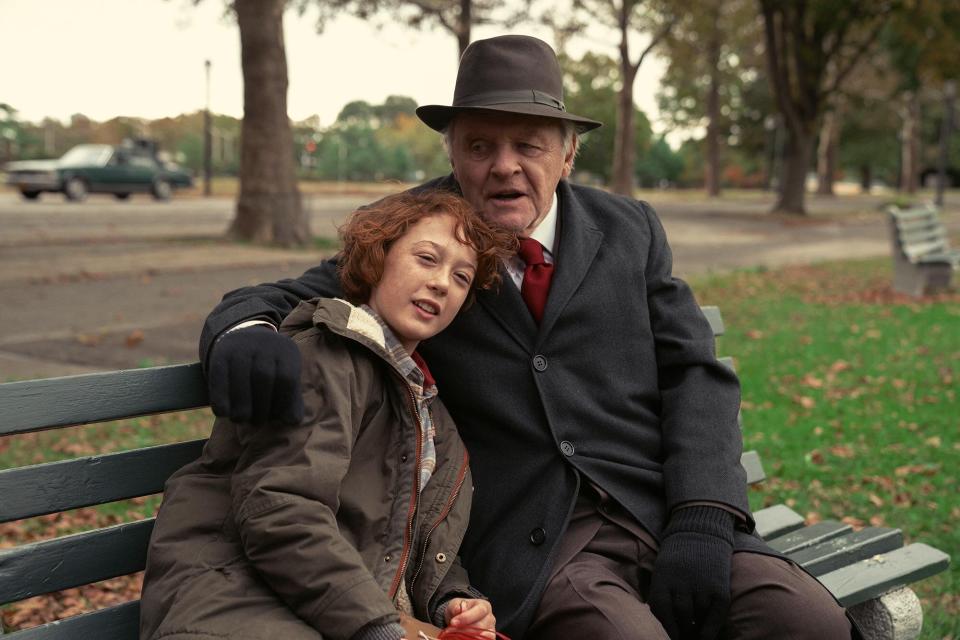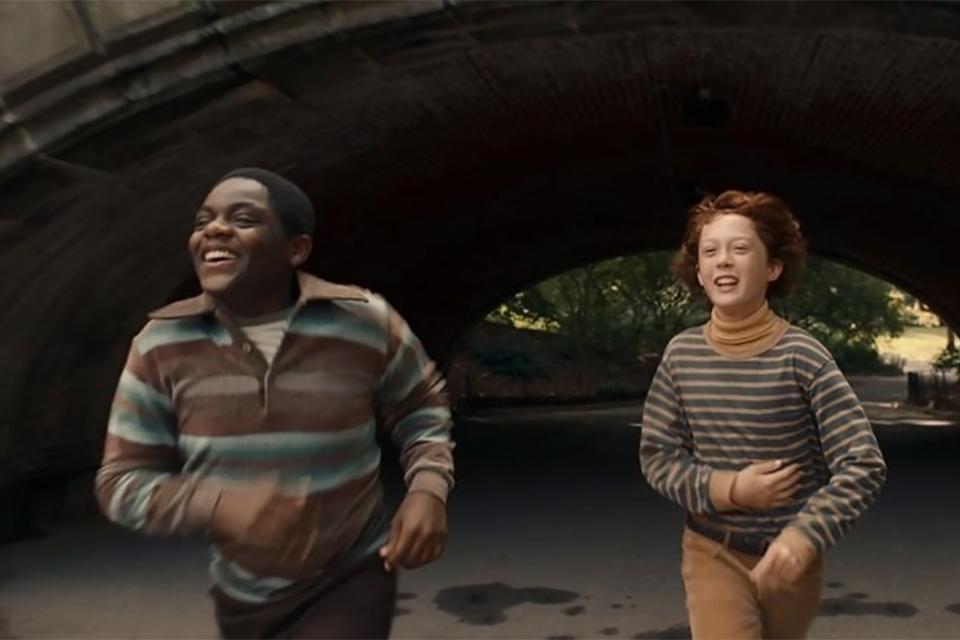Armageddon Time review: Guilt and white privilege swirl in outer-borough triumph
- Oops!Something went wrong.Please try again later.
- Oops!Something went wrong.Please try again later.
Writer-director James Gray has a home turf: blue-collar pockets of Queens and Brooklyn, often Jewish, where his family dramas, never strictly autobiographical, play adjacent to more epic genre instincts like crime and romance. But at the center of his churning, hard-nosed latest, Armageddon Time, Gray has a boy, who, if not exactly him, seems pretty close.
Paul (the wonderful Banks Repeta, balancing mouthy precociousness against hesitation) is a sixth-grader living in Flushing, Queens. Over the course of a few months in the momentous fall of 1980 when we get to know him, Paul dreams of being an artist, though, aside from a class trip to the Guggenheim Museum, that seems far off. He clowns and suffers in public school, neither an ace student nor popular. His bickering household is intense.
None of this is played for cute nostalgia's sake, or even laughs. Gray is after something rarer, a tone that, apart from his recent trips to the Amazon jungle (2016's The Lost City of Z) and deep space (2019's Ad Astra), he summons with career-long authority: the tough desperation of middle-class Jewish families intent on preserving their limited momentum in a still-threatening America. Paul's mother, Esther (a sharp Anne Hathaway), understands her son better than his stern, emotionally blocked engineer dad, Irving (Succession's Jeremy Strong, extraordinary in his quiet moments), a man more comfortable talking about truss bridges than feelings.

Anne Joyce / Focus Features Banks Repeta and Anthony Hopkins in 'Armageddon Time'
There's also a doting grandfather, but banish any Belfast twinkles from mind. In his fedora and boxy suit, Liverpool-born Aaron (Anthony Hopkins, clearly in some kind of golden phase) is both an elegant symbol of the continent they've left behind not so long ago, and a constant reminder of why. Paul barely understands half of what he hears, but when he's told he'll have to change schools to a ritzier private one, it's Aaron who does the family's convincing, over bagels. Hopkins underplays the pain in his monologue, skipping ahead with a survivor's resilience ("The game is rigged.").
Armageddon Time loses a bit of that potency when straining for a larger, inchoate significance: Ronald Reagan on TV, nuclear anxieties, wisps of the Clash's strident reggae-rock (where the film's title comes from). But Gray makes up for it — impressively — by shading his characters in realistic, sometimes unflattering ways. Paul plays hooky with his new friend, Johnny (Jaylin Webb, marking the movie with open-heartedness), who's Black, and the boys get hard, curious stares on the subway, chatting away about rockets and NASA. The film is set at a moment, age-wise, when such natural affinities can fall away to uglier realities.

Focus Features
Will their friendship survive Paul's transfer to Forest Manor Prep (a stand-in for the real-life Kew-Forest School), where suited-and-tied mini-snobs casually hurl racial epithets in all-white playgrounds? Gray is too smart to snow us; his movie lunges into poetic moments of escape even as it curdles. Anticipate a shudder of revulsion when the script accommodates one of the academy's more famous families via a mandatory assembly speech given by then-prominent attorney Maryanne Trump, speaking about "handouts" and "good old-fashioned hard work" (the cameo, by a recent Oscar winner, is too good to reveal here). If it wasn't already clear, fairness is a myth in Gray's universe.
Shooting on the same block of modest row houses where the director was raised, genius cinematographer Darius Khondji (Seven, Uncut Gems, and a longtime Gray collaborator) goes for a darkened, unromanticized burnish, somehow truer to 1980, that, for him, feels new: When Grandpa Aaron presents Paul with a back-to-school gift — a small case of oil paints — the gesture rings out, even in muted colors. Emotionally and dramatically, those are the colors Gray has used since Little Odessa, The Yards, Two Lovers, and The Immigrant, his run of personal, deep-seated work to which Armageddon Time feels attached, possibly even as a corrective. A nuanced exploration of situational ethics tinged with guilt, it's a small, near-perfect New York story. And while its director may not say as much out loud, it's also an act of atonement. Grade: A–
Related content:

